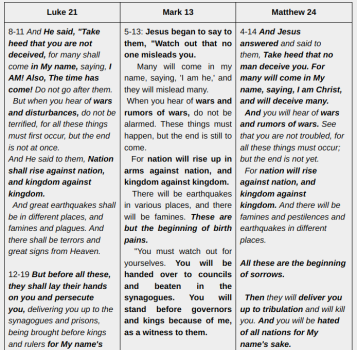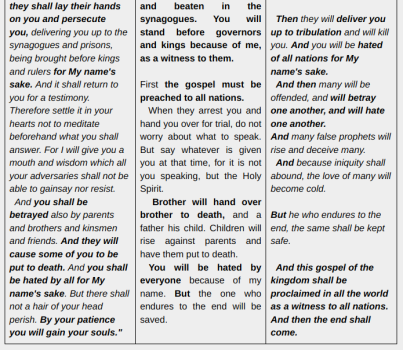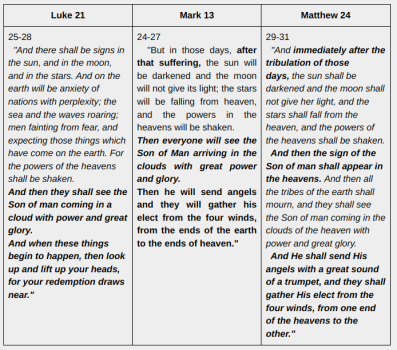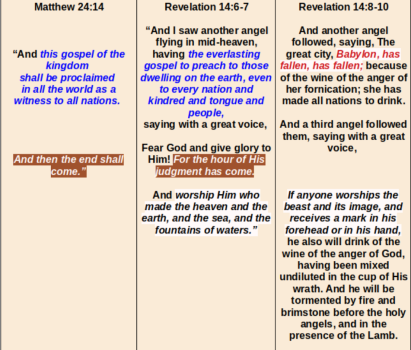O Jerusalem, Jerusalem, the one killing the prophets and stoning those who are sent to her, how often would I have gathered your children together, even as a hen gathers her chicks under her wings, and you would not!
Behold, your house is left to you desolate. For I say to you, You shall not see Me from now on until you say, "Blessed is He who comes in the name of the Lord."
* It was two days before His crucifixion, according to the chronology of the text in Matthew's gospel.
"Now as Jesus was going out of the temple courts and walking away, his disciples came to show him the temple buildings. And he said to them, "Do you see all these things? I tell you the truth, not one stone will be left on another. All will be torn down!" (Matthew 23:37-24:2).
--- Every day Jesus was teaching in the temple courts,
but at night he went and stayed on the Mount of Olives. --- Luke 21:37
--- As he was sitting on the Mount of Olives, his disciples came to him privately and said, "Tell us, when will these things happen? And what will be the sign of your coming and of the end of the age?"
The first thing Jesus then began to speak and warn about in response to the above question, was the tribulation and persecution that the living stones of the New Testament Temple will experience:
View attachment 46080
View attachment 46081
View attachment 46082
View attachment 46083
So let's get insignificant arguments our of the way, so that we can concentrate on the context of Jesus' reference in Matthew 24 to the tribulation of the saints at the end of the Age and to great tribulation vs the wrath of God coming upon Jerusalem.





